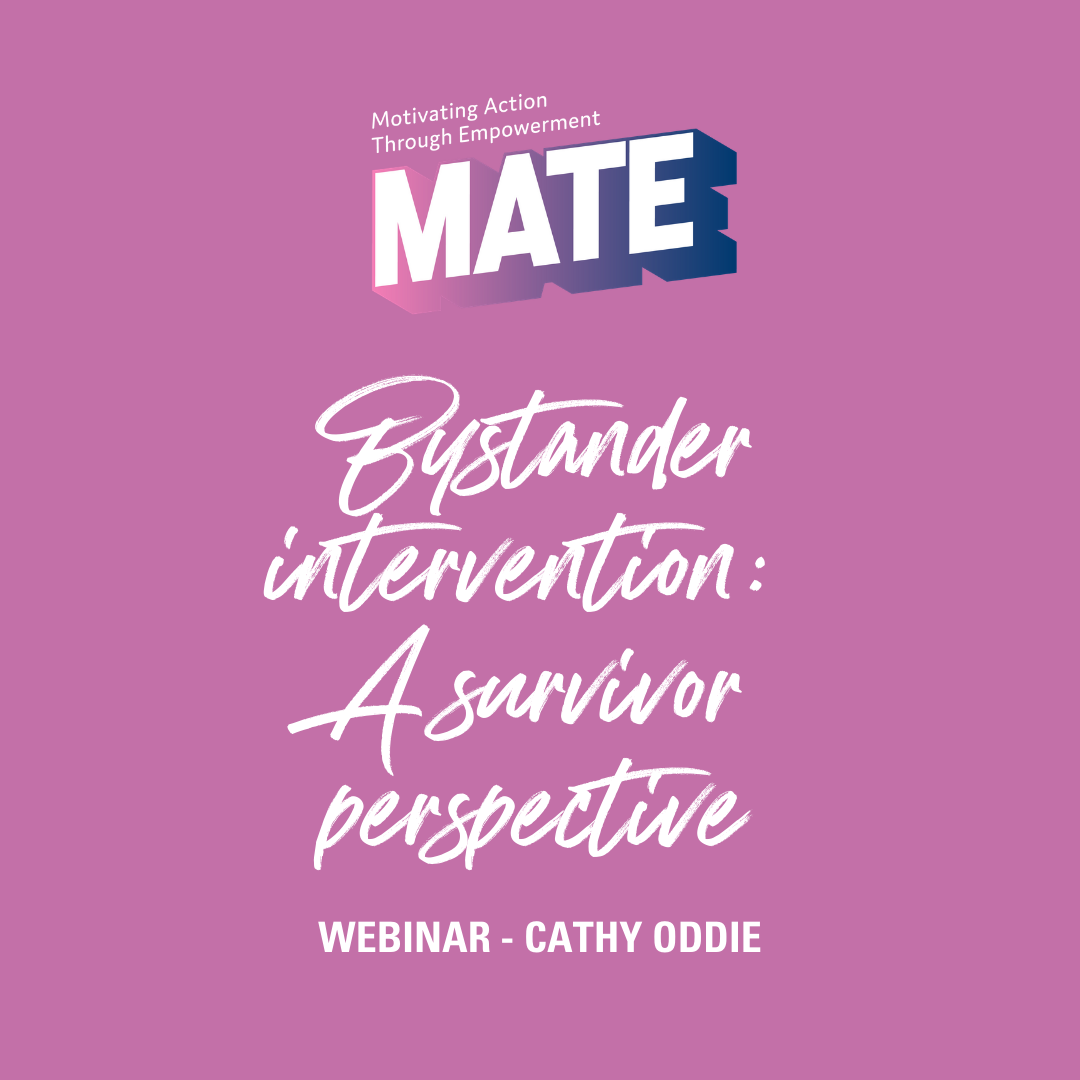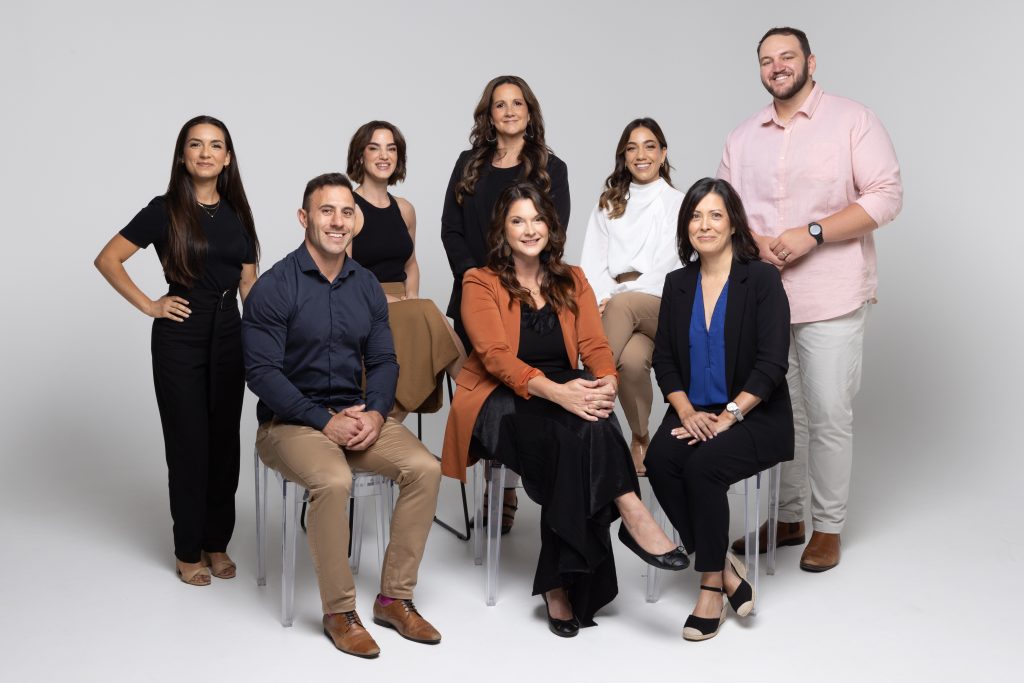“It is very tempting to take the side of the perpetrator. All the perpetrator asks is that the bystander do nothing. He appeals to the universal desire to see, hear, and speak no evil. The victim, on the contrary, asks the bystander to share the burden of pain. The victim demands action, engagement, and remembering.” – Judith Lewis Herman
In every MATE workshop, we discuss the barriers that we all have to intervening as bystanders. These barriers are both social and psychological and they are very well researched. The one that comes up the most consistently, is the fear of making it worse. This is a particularly strong barrier for bystanders intervening in incidences of domestic violence. We know what we are seeing is not alright, and we don’t want to make it worse for the person experiencing the violence and abuse – so how do we balance those two things?
There’s a couple of different ways that we can start break this barrier down and ‘unlearn’ and reframe what we thought we knew about intervening in domestic violence. The first is the fact that we have at least one woman a week dying at the hands of her partner or former partner in Australia. 1 in 6 women and 1 in 16 men over the age of 15 experience domestic violence.
Things are already bad – and this is 100% preventable.
The fear of making it worse
Doing nothing, for fear of making it worse, is not working. Ms Herman in her quote above is correct – Doing nothing is easy, the consequence however, means we maintain status quo, and nothing changes. Doing nothing benefits only the perpetrator, and sends the message that we are OK with status quo, we are ok with the suffering, the abuse and the violence, and that we won’t hold anyone accountable for it. We know, that as good humans, this is not the message we intend to send. Nonetheless, it is the one that is being sent through our inaction. Therefore overcoming the fear of making it worse is paramount to preventing domestic violence. Remembering importantly also, that someone’s choice to use violence is never your fault.
If you, as a bystander, are witnessing violence or abuse, things are already ‘worse’ for the person who is experiencing it. So you don’t make it worse by getting involved. In fact, by doing something you send a really clear message of support to the victim. A message of support that says you are there for them, and are prepared to support them unconditionally and non-judgementally.
The fear of getting it wrong
What we have found is that the fear of making it worse is often compounded with the ‘fear of getting it wrong’, and the fear of getting it wrong is two-fold. First, we fear that what we say or do may not be the ‘right’ way to intervene. Second, we fear that if we suggest that someone is experiencing abuse and they are not – that we may lose their friendship or cause offence. Both of these barriers can be overcome when we recognise that intervening can be as simple as asking “are you OK?”.
It can sound like “I am here for you”, or “what do you need from me?” or “I have noticed some concerning behaviour, please reach out to me if I can support you at any time”.
It can look like consistently checking in on someone and using any of the above statements time and again, week in, week out – regardless of the response that you may receive. When our intention comes from a place of genuine concern, and is rooted in the what that person may want to need from you (rather than what you want them to do), then we can’t get it wrong.
What do survivors say?
We were recently lucky enough to conduct a public webinar with Cathy Oddie, discussing this topic. Cathy is a Financial Wellbeing Consultant, Family Violence Advocate, Public Speaker and Survivor. Cathy shared her experience and her perspective about what support would have looked like to her when she was in an abusive relationship. You can view the recording here.
Further, we have spoken with many survivors of domestic violence, all of whom say they wished bystanders had said or done something. When they knew that neighbours had heard their screams, or friends had seen their abusers need for power and control, and those friends and neighbours remained silent – they felt further isolated and unsupported. Oftentimes, they don’t need you to give them the answers, or want you to tell them what they should do. Ultimately, they want to know that someone cares. That what is happening to them is not OK, and that someone is there for them – and every single one of us has the capacity to do that.
Gaining to courage to #besomeonewhodoessomething is the challenging part. But the more we practice, the better we get. When we all work together, doing what we each can do, we will change the world!
*If this has bought anything up for you, or you feel like you need support, please contact 1800RESPECT. 18000RESPECT is Australia’s nationwide 24/7 confidential counselling service. Lifeline on 13 11 14 or Mensline Australia on 1300 78 99 78.


